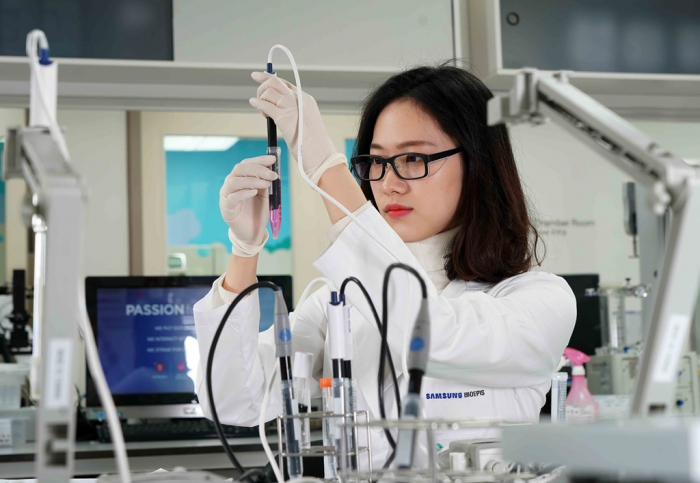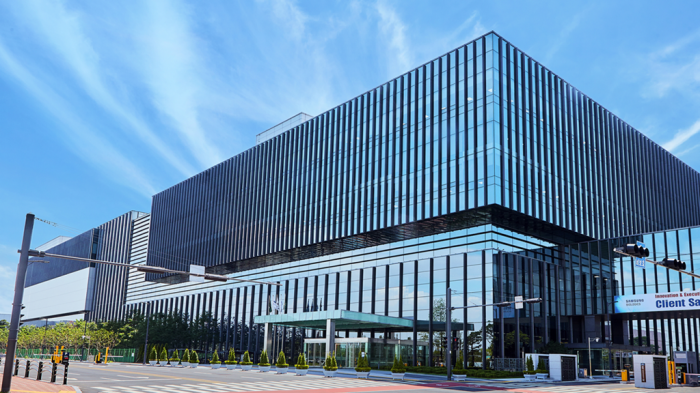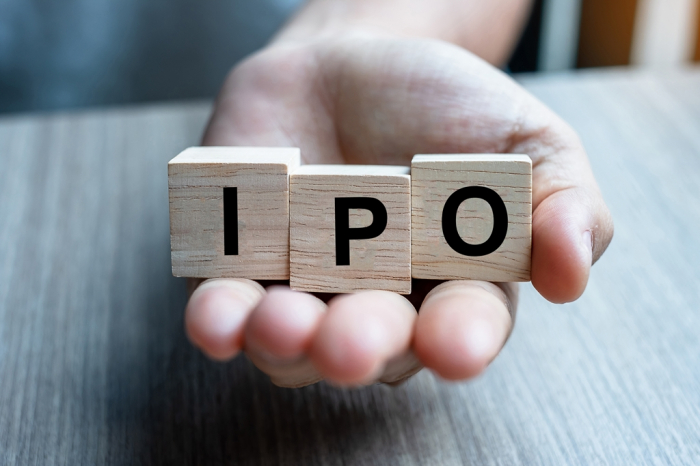Pharmaceuticals
Samsung Bioepis to double biosimilars, may resume Nasdaq listing plans
With a total of 10 biosimilars to go on sale by 2025, the pharma may be tempted again to seek an IPO
By Feb 24, 2022 (Gmt+09:00)
3
Min read
Most Read
LG Chem to sell water filter business to Glenwood PE for $692 million


Kyobo Life poised to buy Japan’s SBI Group-owned savings bank


KT&G eyes overseas M&A after rejecting activist fund's offer


StockX in merger talks with Naver’s online reseller Kream


Mirae Asset to be named Korea Post’s core real estate fund operator



Samsung Bioepis Co., a biopharmaceutical unit of Samsung Group, plans to double the number of its biosimilar products on sale to 10 by 2025 and accelerate its push for the development of novel therapeutics.
With its increasing biosimilar revenue, the company may also resume an initial public offering on the Nasdaq, a plan scrapped in 2014, industry officials said on Thursday.
The company currently sells five biosimilars – three in the autoimmune sector, which are Infliximab, Etanercept, Adalimumab; and two others, Trastuzumab and Bevacizumab, in oncology.
The five products, which are sold via its two US-based global sales partners, Biogen Inc. and Organon & Co., fetched $1.26 billion in overseas markets, excluding Korea, last year, up 11% from the previous year. About half of the sales revenue is reflected in Samsung’s total sales, while the other half goes to Biogen and Organon.
Samsung Biepis is a joint venture between Samsung Group’s biotech arm Samsung Biologics Co. and the US biopharmaceutical firm Biogen.
The Korean biosimilar maker said its total sales last year reached 850 billion won ($707 million), a 10% increase from the previous year.

Industry officials said Samsung Bioepis’ sales will likely rise to over 1 trillion won this year, helped by other biosimilars that are set to go on sale one after another in the coming years.
This year alone, the company plans to add a product to its sales list – Byooviz, a biosimilar referencing Lucentis for the treatment of macular degeneration.
Samsung obtained sales approval for Byooviz, codenamed SB11, from the European authorities in August 2021 and from the US Food and Drug Administration last September.
Byooviz is an anti-vascular endothelial growth factor (VEGF) treatment that can prevent the loss of eyesight in people suffering from retinal vascular disorders that can lead to irreversible blindness or visual impairment in adults.
The company recently completed its phase 3 clinical tests of a biosimilar of Soliris, also known as Eculizumab, a medication used to treat paroxysmal nocturnal hemoglobinuria among other diseases.
Three other Samsung biosimilars, which are replicas of Eylea, Stelara and Prolia, are expected to complete their phase 3 clinical trials by the end of this year.
NOVEL THERAPEUTICS, NASDAQ IPO
Samsung Bioepis also plans to accelerate its push for expansion in the development of novel therapeutics.
The Korean biosimilar maker started its new drug development projects in 2018 through a contract with Takeda Pharmaceutical Co., an American-Japanese multinational drug company, to develop an acute pancreatitis treatment.

However, its novel drug development business made little progress as Samsung’s efforts to advance into new fields often overlapped with those of Biogen.
Last month, Biogen said it is selling its entire stake in the JV, amounting to a 50% stake minus one share, to Samsung Biologics for $2.3 billion, ending their decade-long partnership.
Industry watchers said Samsung Bioepis is particularly looking to enter the cell and gene therapy business in line with Samsung Biologics’ move to advance into the contract development and manufacturing organization (CDMO) business for gene therapeutics.
“Samsung Bioepis could try to acquire a foreign pharma that develops cell and gene therapeutics,” said an industry official.
Now that Samsung Bioepis is expected to raise its revenue from both biosimilars and new drug development, the company will be tempted to resume its IPO on the Nasdaq, according to industry officials.
In 2014, the company’s first attempt to list its shares on the Nasdaq failed due to the broader market downturn and controversy with its US partner Biogen over the JV share ownership structure.
Write to Ju-Hyun Lee at deep@hankyung.com
In-Soo Nam edited this article.
More to Read
-
 PharmaceuticalsSamsung Bioepis posts $1.26 billion in global biosimilar sales
PharmaceuticalsSamsung Bioepis posts $1.26 billion in global biosimilar salesFeb 18, 2022 (Gmt+09:00)
2 Min read -
 M&AsSamsung buys $2.3 bn Bioepis stake from Biogen to end partnership
M&AsSamsung buys $2.3 bn Bioepis stake from Biogen to end partnershipJan 28, 2022 (Gmt+09:00)
3 Min read -
 BiosimilarsSamsung Bioepis gets FDA approval for Lucentis biosimilar Byooviz
BiosimilarsSamsung Bioepis gets FDA approval for Lucentis biosimilar ByoovizSep 23, 2021 (Gmt+09:00)
3 Min read -
 BiosimilarsCelltrion, Samsung Bioepis anticipate increased biosimilar sales in Europe
BiosimilarsCelltrion, Samsung Bioepis anticipate increased biosimilar sales in EuropeJul 12, 2021 (Gmt+09:00)
1 Min read -
 COVID vaccinesKorean pharmas may turn into global vaccine makers on Biden remarks
COVID vaccinesKorean pharmas may turn into global vaccine makers on Biden remarksMay 07, 2021 (Gmt+09:00)
4 Min read
Comment 0
LOG IN


